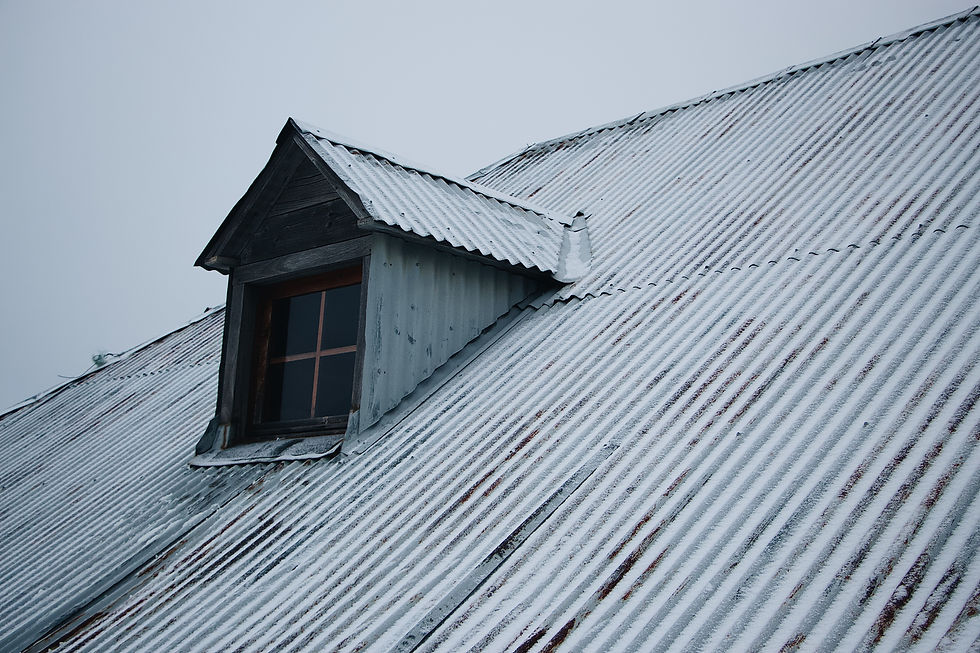🏗️ WaterRoofs in Modular Construction: Climate-Tech Meets Modular Revolution
- Melanie Galpin

- Aug 18
- 2 min read

The modular building boom is reshaping modern construction—offering faster, greener, and more adaptive solutions for today’s urban needs. Yet while modular walls and interiors have evolved, rooftops often remain passive or outdated.
At WaterRoofs, we’re changing that—integrating evaporative, recyclable roofing into modular systems to deliver climate performance where it matters most: the top layer.
🔧 Modular Construction: A Climate Innovation Engine
Modular (prefabricated) buildings are constructed off-site and assembled on-site—reducing waste, shortening timelines, and enabling high-performance design:
Up to 90% material waste reduction
Standardized production and consistent quality
Greater flexibility in reuse, relocation, and adaptation
Faster delivery, especially in housing or emergency infrastructure
But many modular structures still use conventional rooftops—designed to shed water, absorb heat, and miss their climate potential.
🌱 UHCS: A PET-Based Modular Building System
UHCS (Ustinov Hoffmann Construction System), co-developed by Igor Ustinov, is a patented, beam-and-pillar structural system made entirely from recycled PET. It includes:
Load-bearing PET beams and columns
Wall panels made from PET-based insulating materials
Complete modularity—designed for cost-efficiency and recyclability
Lightweight components that can be disassembled and reused
This structural system complements WaterRoofs perfectly—both use recycled PET, both are designed for adaptability, and together they form a full, circular, climate-conscious building envelope.
💧 Why Evaporative Roofs Matter in Modular Builds
WaterRoofs brings evaporative functionality to modular buildings:
Tiles are made from recycled PET
Engineered with internal micro-grooves that retain rainwater
Slowly release water through evaporation—cooling rooftops and surrounding air
Return up to 750 L/m²/year to the atmosphere
Install quickly without heavy soil or ballast
Compatible with PV, green roofing, or rainwater harvesting systems
This makes them ideal for modular housing, emergency units, pop-up buildings, and prefab community infrastructure.
🌍 How WaterRoofs Supports Modular Trends
Trend | Role of WaterRoofs |
Energy-efficient modules | Adds passive rooftop cooling and evaporative comfort |
Circular materials | Uses recycled PET in both roof and wall systems (via UHCS) |
Fast deployment | Snap-fit modular tiles install quickly on prefab units |
Green-certified prefabs | Integrates blue–green performance without extra soil load or structural change |
Architects across Europe and North America are now embedding solar panels, water walls, and biophilic features into modular designs. Adding WaterRoofs amplifies those efforts—without complicating deployment.
🏙️ Real-World Examples
Unit‑Design and Terhalle have prototyped modular timber canopy roofs with PV and green features
The RESILIO Project in Amsterdam uses modular blue–green trays to store water beneath rooftop vegetation
WaterRoofs builds on these ideas, offering a prefabricated PET-based roofing system with evaporative cooling as its core function.
✅ The Big Picture: Climate-Ready Modularity
WaterRoofs + UHCS isn’t just a design combo—it’s a climate architecture strategy.
For manufacturers: license PET components and produce full circular kits
For architects: build modular units with integrated water + heat response
For cities: deploy scalable, passive infrastructure for resilience
Together, they transform impermeable rooftops into living climate membranes—restoring evaporation, improving air quality, and cutting energy loads.
📩 Curious about integration or licensing?
We offer modular kits, pilot system specs, and collaboration support.
Contact:
Learn more: www.waterroofs.com



Comments